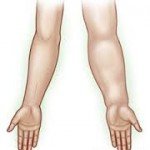I am going crazy noticing the ankles of people around me. I tend to even notice the feet of strangers. What am I trying to see? Well I am trying to see if they have swelling around their ankles! My eyes secretly travel to their feet to find if they are dealing with water retention! The truth is that I myself am trying to reduce it.
I have always found that it is best to give words to my thoughts to overcome an obsession and as a result this article. Somehow the entire process of penning down my thoughts gives me more clarity about what i am dealing with and what am I going to do.
Lymphedema is also known as fluid retention. A person may experience it due to numerous medical reasons but it is relatively common in case of people receiving treatment or who have received treatment for cancer. A surgery, radiation or certain medicines may lead to lymphedema. Lymph fluid is essential to fight infection and disease in the body. It causes pain and discomfort to the person complaining of it. Lymph fluid is essential to fight infection and disease in the body. Lymphedema is unhealthy accumulation of lymph fluid in the body. Extra fluid in the body leads to swelling in the arms or the legs. There is no definite time when swelling in the body may start showing up.
Some of the symptoms that indicate towards lymphedema are:
- Swelling that stays for more than a week or two;

- No weight gain but clothes and jewelry feel tight;
- Pain or redness in the affected body part;
- Body temperature higher than normal without any reasons like flu or cold;
- Loss of flexibility;
- Severe cases may experience repeated infections in the affected body part
Now some good news with lymphedema. It can be controlled and better managed by being aware.
Treatments for Lymphedema
There are effective treatments available for reducing lymphedema  or its increasing. The most commonly recommended treatment is CDT (Complete Decongestive Thrapy) which is a combination of massages for draining excess lymph, exercises, compression and taking care of the skin. There are certified experts to give these treatments. It is important to
or its increasing. The most commonly recommended treatment is CDT (Complete Decongestive Thrapy) which is a combination of massages for draining excess lymph, exercises, compression and taking care of the skin. There are certified experts to give these treatments. It is important to
- Understand the symptoms in order to control the condition on priority basis;
- Be aware in order to avoid situations that lead to the condition;
- Be involved in the treatment in order to make the best of the treatment
As I said, I like to vent out my feelings by typing the words. My skin is parched, my clothes and shoes feel uncomfortable, my joints are stiff, my fingers do not have a grip and I look as if I have gained loads of weight. I have a nice range of bags that I do not want to carry because my shoulder tends to hurt. I have sulked on this situation but am not over with it as everyday seems like a new challenge. Trust me it is not about weight, it is all about the discomfort.
What can I do to relieve the symptoms?
The doctor recommends a few changes to lifestyle and diet to deal with lymphdema.
- Reduce the salt intake. Salt can be substituted by other flavors like vinegar, lemon juice and herbs;
- Have a protein rich diet;
- Take foods that are rich in potassium, Vitamin B6, B5 and D;
- Avoid tea, coffee and aerated drinks;
- Incorporate curd, spinach, cucumber, cabbage and tofu in your diet;
- In case you feel a swelling in the abdominal area, opt for small and frequent meals;
- Do not reduce your water intake for it is important to stay hydrated. It is only in case of severe cases that it may be limited;
- Take frequent rest breaks;
- Place your feet at a height while lying down or sitting;
- Try wearing compression stockings during the day;
- Do lots of stretching exercises but avoid straining the affected body part.
It is best to consult your physician who will help understand why the lyphedema is there and what best can be done to relieve the symptoms. The measures taken and the results will vary from case to case.








